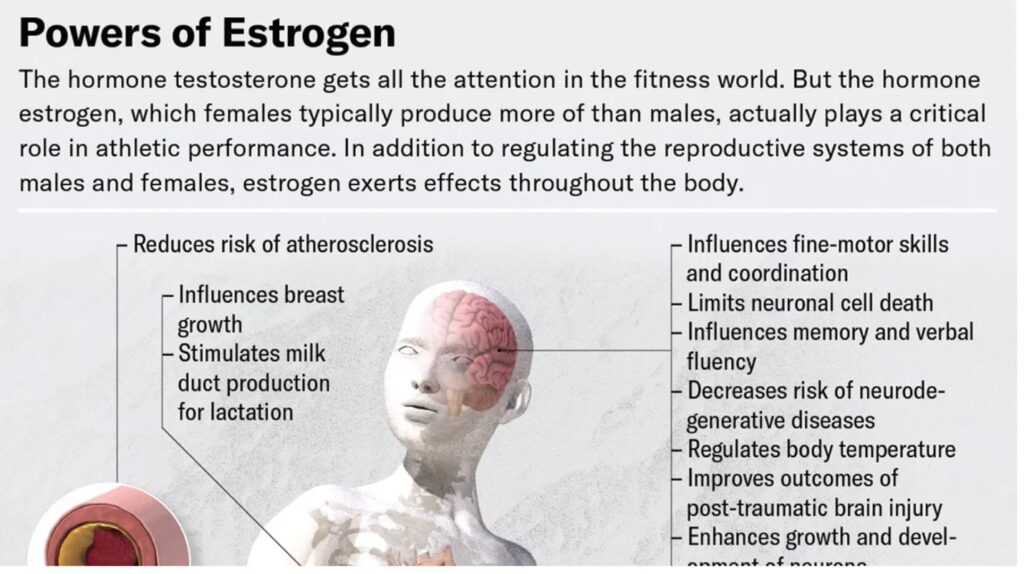Note: This article first appeared on the Caucasus Data Blog, a joint effort of CRRC-Georgia and OC Media. It was written by Salome Dolidze and Kristine Vacharadze. The views expressed in the article are the authors’ alone, and do not necessarily reflect the views of CRRC Georgia, or any related entity.
According to a new UN Women and CRRC Georgia study, while most Georgians believe domestic violence against a partner is unacceptable, fewer are certain that their community believes the same.
The 2023 UN Women and GEOSTAT National Study on Violence against Women in Georgia found that one in four women (23%) experienced intimate partner violence at some point in their lives.
Additionally, half of women aged 15–69 had experienced at least one of seven types of violence — child sexual abuse before the age of 18; physical and/or emotional child abuse before the age of 18; any type of intimate partner violence; non-partner physical violence since the age of 15; non-partner sexual violence since the age of 15; sexual harassment; and stalking — asked about on the survey.
Clearly, domestic violence is a substantial problem in Georgia. One method for reducing its occurrence is through informing people that social norms view domestic violence as unacceptable.
In the latest UN Women and CRRC Georgia study, published on 18 March, only 6% of respondents stated that there were acceptable circumstances for someone to hit their partner or spouse, with 7% of women and 3% of men expressing this view.
In turn, 91% of respondents stated that there are no acceptable circumstances for hitting a partner.
However, fewer people (78%) agreed that their society would view things the same. The data showed that 13% were uncertain about the perceived social norm, but only 4% were uncertain about their own view.
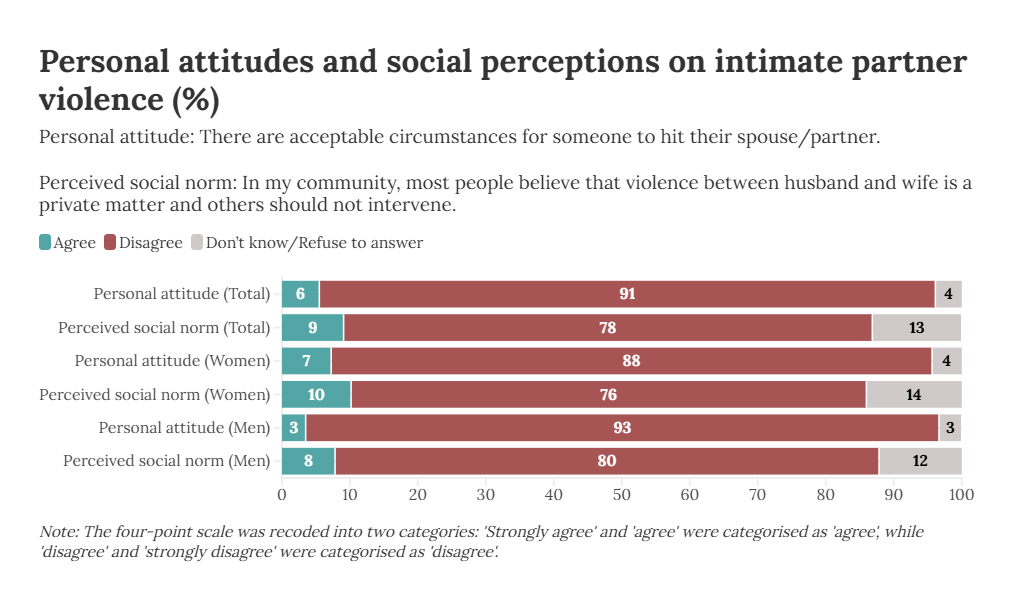
A significant minority, 23%, responded that violence between husband and wife was a private matter and that others should not interfere. This view was shared by 19% of women and 27% of men.
While 74% personally disagreed with the view that spousal violence is a private matter, only 59% responded that they believe society as a whole holds the same view, with 16% uncertain over society’s views, compared to 3% uncertain of their own view.

Regarding physical violence, individuals under 45, those who are employed, and those with vocational education are less likely to agree that there are acceptable circumstances for hitting a spouse or partner compared to younger individuals, those who are not working, or those with lower education levels. This perception did not vary by sex, settlement type, ethnicity, or education level when controlling for other factors.
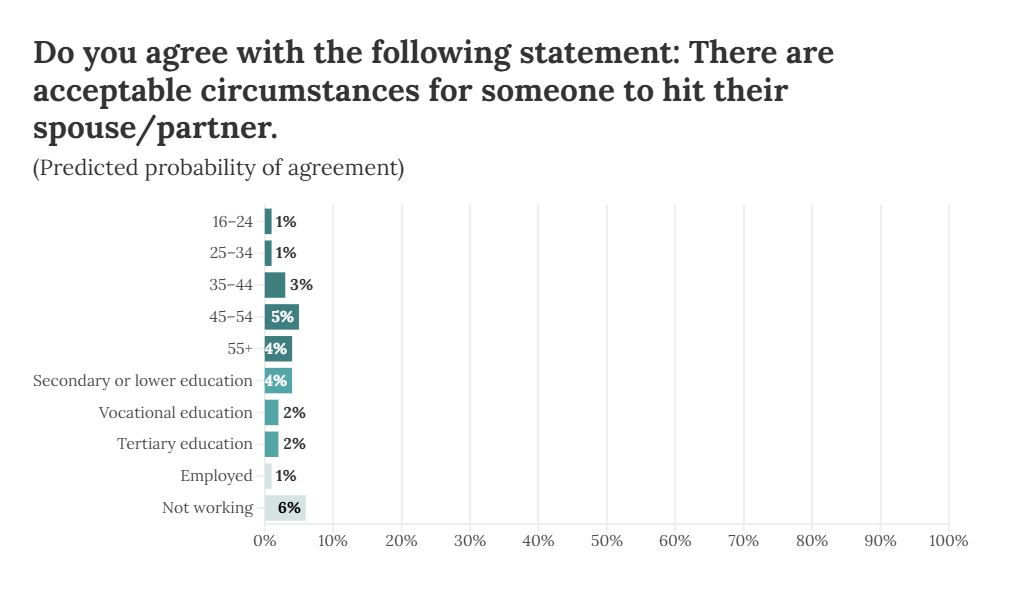
When asked whether violence between a husband and wife is a private matter and others should not intervene, men were more likely than women to agree with this statement. However, other demographic factors, such as age, settlement type, education level, ethnicity, or employment status, did not show any statistically significant differences.
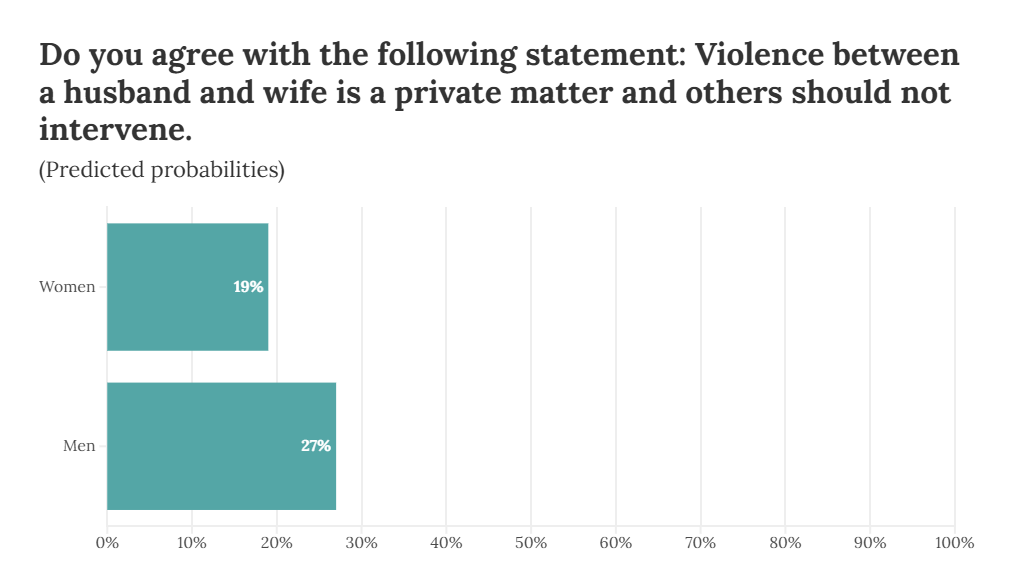
The main difference between personal attitudes and social norms was uncertainty. Individuals aged 25–34, those with higher education, and ethnic minorities were more likely to respond with ‘don’t know’ when asked whether most people in their community believe there are acceptable circumstances for hitting a partner. This contrasts with younger individuals, those with secondary or lower education, and ethnic Georgians. This perception did not vary by sex, settlement type, or employment status.
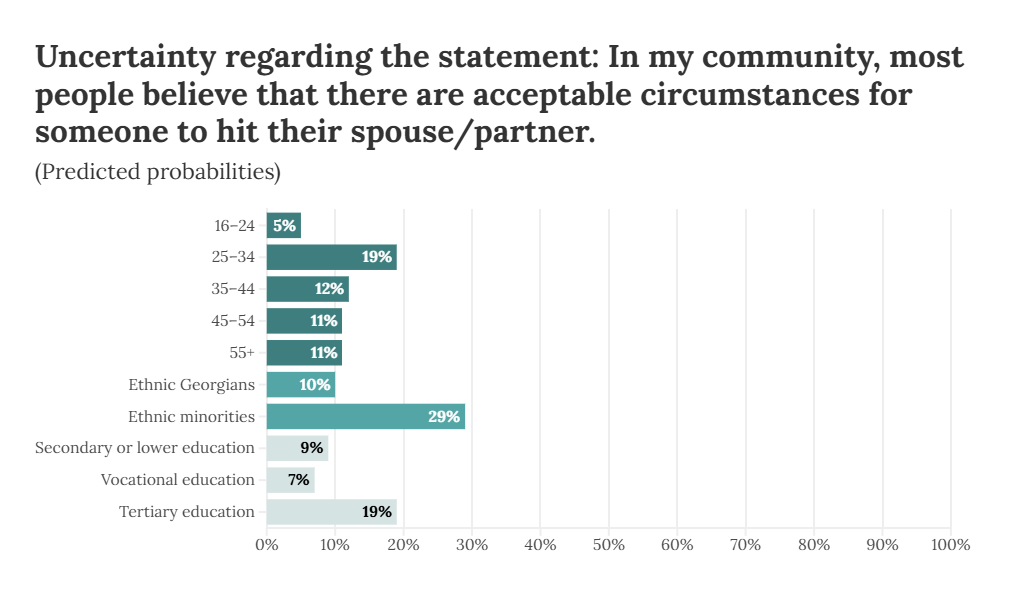
Regarding the community’s perception that violence between a husband and wife is a private matter and others should not intervene, ethnic minorities were more likely than ethnic Georgians to respond with ‘don’t know’. However, this attitude did not significantly vary by sex, age, settlement type, education level, or employment status.

According to the above data, most people in Georgia disapprove of domestic violence, and only a small share believe it is justified to hit a partner. However, fewer people believe that their communities share these anti-violent views, with the gap largely made up of uncertainty about social norms. This presents an opportunity for campaigners to inform Georgians that indeed, the vast majority of the public are against domestic violence.
The data used in this article is available here. The regression analysis used in this article included the following variables: age (16–24, 25–34, 35–44, 45–54, 55+); sex (male or female); settlement type (Tbilisi, other urban, rural); education level (secondary or lower, vocational, completed or uncompleted higher education); ethnicity (ethnic Georgian or ethnic minority); and employment status (employed or unemployed).
